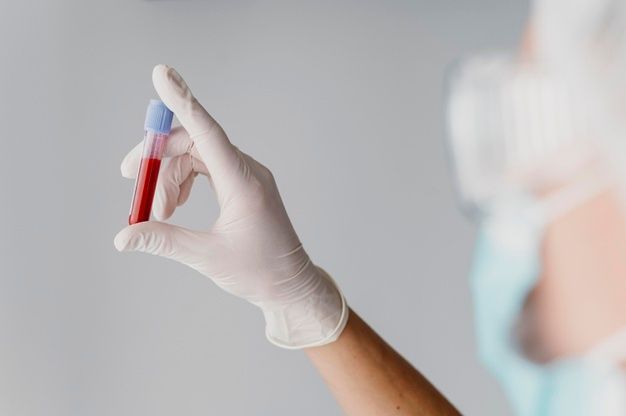
National Blood Donor Month
January represents National Blood Donor Month, a health holiday dedicated to drawing awareness to the critical public health initiative of blood donation. This January, the need for blood donation is especially great, as our country’s blood donation network is reeling from a disruption in its supply.
Blood donations have declined—in fact, the American Red Cross, which supplies about 40 percent of the nation’s blood, says that it is experiencing the worst blood shortage in more than a decade.
Read on to learn why it’s important to donate blood and how you can pitch in during National Blood Donor Month.
Why is the blood supply low?
The nation’s blood supply was severely disrupted by the onset of the COVID-19 pandemic. People who had previously been routine blood donors stopped because of a lack of access to donation centers, personal fears about catching COVID-19 in a healthcare setting, and lack of clarity about whether it is safe to donate blood after receiving a COVID-19 vaccine. According to the American Red Cross, it is safe. Blood drives, which are generally large events with many people contained in an enclosed space, have also decreased because of COVID-related restrictions.
The month of January is generally a time of low blood supply, even outside of pandemic times, because blood donations drop off during the holidays, and people are more likely to be sick with respiratory illnesses. This typical seasonal dip layered on top of pandemic disruption is problematic because blood cannot be created from any means other than human volunteers. Therefore, when the volunteers disappear, so does the blood.
What happens when the national blood supply is low?
When blood supplies drop, patients with ongoing chronic medical conditions such as cancer and sickle cell anemia suffer because their medical needs cannot be met. Blood donation shortages may seem like a distant issue if you are healthy and do not have a loved one in the hospital. However, blood donations shortages affect everyone.
If a hospital does not have a great enough blood supply, it must begin postponing or canceling surgeries because these procedures often require blood transfusions. Emergency departments become unequipped to handle traumatic situations requiring extra blood. It is scary to be living in a society where you could have an emergency need that a hospital could not readily address.
How are blood donations used?
Blood donations are used in a variety of healthcare settings, and experts estimate that one donation can save up to three lives. Donated blood is used in routine and emergency surgeries and during the hospital care of people with acute and chronic conditions. Blood donation is especially important now, nearly two years into the pandemic, because many patients who are hospitalized and in critical condition need extra blood components.
What is the blood donation process like?
When you sign up to donate blood, you will be screened with a routine questionnaire to ensure you are eligible to volunteer. Blood donations are limited to specific ages and health statuses—as well as frequencies—depending on the type of blood that you are donating. The entire process generally takes about an hour, with the actual physical donation lasting from 8-10 minutes.
It is rare to experience side effects from blood donation, and the process is an intrinsically rewarding one because, as the National Institutes of Health (NIH) notes, when you donate blood, you can save a life.
How is blood donation currently being incentivized?
Blood donation is traditionally a generous and altruistic act—something that millions of Americans do each year to help their communities. However, in desperate times, blood donation organizations do offer extra incentives for those who donate. According to the American Red Cross, if you sign up to give blood through their website between January 1 and 31, you will be entered into a lottery for a chance to win a Super Bowl LVI getaway for two in Los Angeles. Those who register will also be automatically entered into a drawing for a home theater system and a $500 gift card.
How to learn more
Whether you are a person who has previously donated blood, or someone who has never donated blood in the past, the call to action this January is clear: Communities throughout our nation are greatly in need of blood donations. If we all pitch in, we can overcome the shortage together and make our communities safer for everyone.
Research and materials for this article were compiled, written, and distributed on behalf of the National Public Health Information Coalition. The views and opinions expressed in this blog are those of the various authors and do not necessarily reflect the official policy or position of the National Public Health Information Coalition or its members.
References:
[1] The American Red Cross. https://www.redcrossblood.org/
[2] About National Blood Donor Month. https://www.aabb.org/for-donors-patients/national-blood-donor-month
[3] The Importance of the Blood Supply. https://www.redcrossblood.org/donate-blood/how-to-donate/how-blood-donations-help/blood-needs-blood-supply.html
[4] What to Know About the Coronavirus and Blood Donation. https://www.redcrossblood.org/donate-blood/dlp/coronavirus--covid-19--and-blood-donation.html
[5] Requirements by Donation Type. https://www.redcrossblood.org/donate-blood/how-to-donate/eligibility-requirements.html
[6] The Blood Donation Process. https://www.redcrossblood.org/donate-blood/blood-donation-process/donation-process-overview.html
[7] Blood Safety Basics. https://www.cdc.gov/bloodsafety/basics.html
[8] NIH Blood Bank. https://clinicalcenter.nih.gov/blooddonor/index.html

